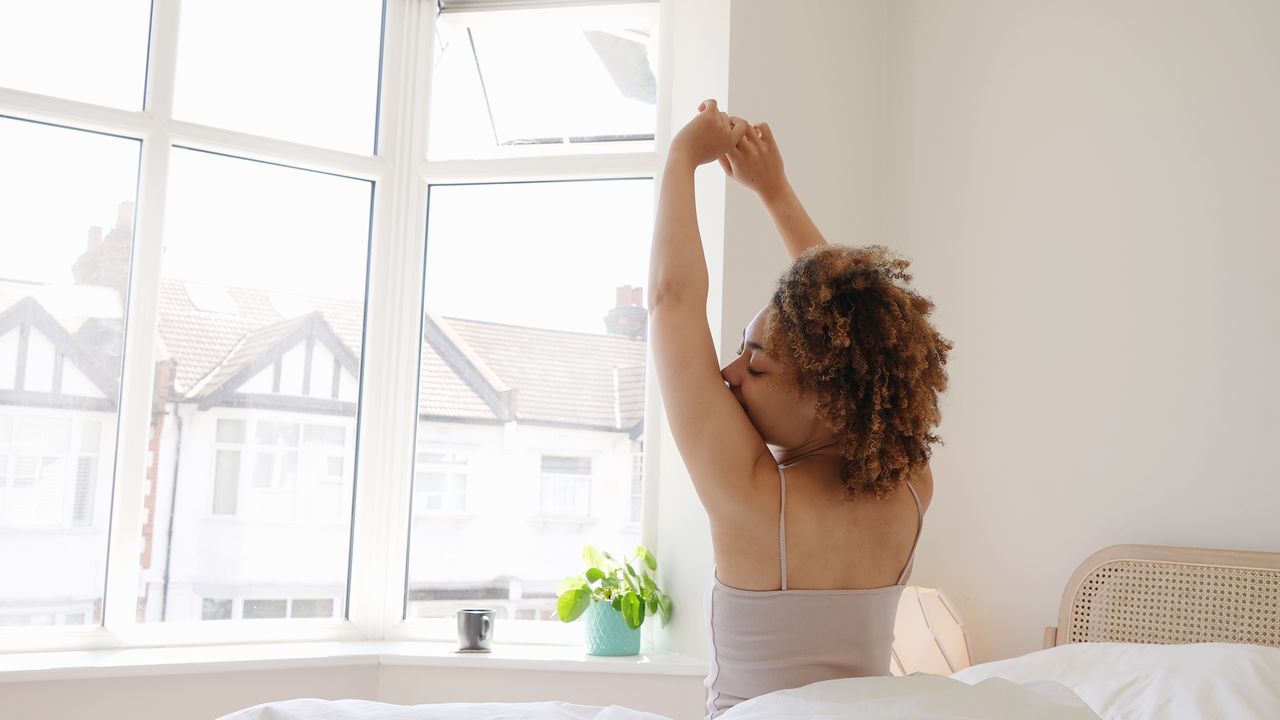
When you wake up in the morning, it might feel like your brain just switched on at the ring of an alarm, although you still might feel groggy for a while. But the actual process the brain goes through to wake up is a gradual, coordinated event. So exactly how does it happen?
First, let’s define what it means to be awake. “Being awake means the brain is in a state that supports awareness, movement and thinking,” Rachel Rowe, a professor of integrative physiology at the University of Colorado Boulder, told Live Science in an email. “Unlike sleep, where brain waves are slow and synchronized, wakefulness is marked by faster, more flexible activity that lets us respond to the world around us.”
There isn’t a single moment when the brain flips from asleep to awake, however, said Aurélie Stephan, a sleep researcher at the University of Lausanne in Switzerland. Research has shown that the subcortical regions of the brain — a group of neural formations located below the cerebral cortex — are responsible for waking us up. The reticular activating system (RAS) first acts like the “starter switch,” Rowe explained, sending signals to activate the thalamus, a structure that relays sensory information to other parts of the brain, and then the cerebral cortex, the wrinkled outer layer of the brain.
In a 2025 study, Stephan and her colleagues also found that the brain executes a signature pattern of activity upon waking. When the study participants woke up from non-REM sleep, which comprises different stages of sleep ranging from light to deep sleep — their brain activity first showed a short burst in slower, sleep-like waves, followed by faster waves linked to wakefulness.
When they woke up from REM sleep — a sleep stage characterized by vivid dreams and rapid eye movements — their brain waves went straight to faster activity. Overall, regardless of which stage of sleep participants were in, their brain activity appeared to start from the front and central regions of the brain and move to the back of the brain as they woke up, the researchers found.
Why we feel so groggy in the morning
Once we’re awake, our brains still need time to reach their full cognitive capacity. This period, called sleep inertia, can last anywhere from 15 to 30 minutes — sometimes even an hour, Stephan said. Researchers don’t know why this morning grogginess happens, but the time we wake up can play an important role in how we feel. And ditching the alarm clock could help.
“When your brain [naturally] wakes up, it will send a signal in a moment that makes sense” to end your slumber, Stephan explained. There are many regions taking internal and external signals into account that are discussing with each other when to transition to different stages of sleep and also, ultimately, when to wake you up spontaneously, she explained.
Our arousal system is listening for these internal and external inputs and creating cycles in which we’re more alert about every 50 seconds. Our level of alertness fluctuates within those 50 second periods, growing and diminishing over and over.
“During the buildup phase … it is harder to be woken up,” Stephan said. But when the cycle wanes, “our sleep is more fragile and it is easier to wake up,” she said. “So basically within this 50 seconds period we have a period of sleep continuity and a period of sleep fragility.”
That’s why Stephan advises her friends to always wake up at the same time, without the help of an alarm.
“Your brain will wait for the right 50-second moment, and you’ll feel less sleepy upon awakening,” she said. “If you have an alarm clock, it’s kind of random. It could wake you up in the worst moment ever, and then you will have a strong sleep inertia.”
Still, much of what we know about waking up remains a mystery. Scientists still aren’t sure why the same amount of sleep feels refreshing one day but not the next. Some research has suggested that diet and length of sleep can impact morning alertness, or how the brain switches from awake to asleep.
“What pushes our brain to wake up spontaneously actually remains an open question,” Stephan said.
